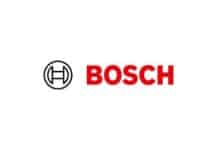Kaspersky has successfully completed the Service Organization Control for Service Organizations (SOC 2) Type 1 audit. The final report, issued by one of the Big Four accounting firms, confirms that the development and release of Kaspersky’s threat detection rules databases (AV databases) are protected from unauthorized changes by strong security controls. In addition, the company is announcing new developments of its Global Transparency Initiative.
The Service Organization Controls (SOC) Reporting Framework is a globally recognized report for cybersecurity risk management controls, developed by the American Institute of Certified Public Accountants (AICPA) to inform customers about effective design and implementation of security controls. Being a responsible and transparent company for its customers, Kaspersky has chosen this standard to demonstrate the trustworthiness of its product and the company’s commitment to the AICPA Trust Service Principles and Criteria: Security, Availability, Processing Integrity, Confidentiality, and Privacy.
The examination completed under the SSAE 18 standard (Statement of Standards for Attestation Engagements) includes internal controls over regular automatic updates of antivirus databases, created and distributed by Kaspersky for its products operating on Windows and Unix Servers. In its final report, the Big Four independent auditor identified suitability of the abovementioned controls and their appropriate operation on a specified date.
“The security of our products is certainly one of our top priorities. We are proud to have completed this independent assessment which provides our customers with assurance of the security of our products, and confidence in our R&D processes and controls. This audit marks one more step in our efforts to demonstrate the company’s transparency,” noted Andrey Efremov, Chief Technology Officer at Kaspersky.
Following the terms of the contract, Kaspersky cannot disclose the name of the third-party Big Four auditor. Although the company can disclose the principal information about its abovementioned commitments and requirements in the SOC 2 Type 1 report upon request.
The audit was done as part of the Global Transparency Initiative, which Kaspersky announced in 2017, to further ensure its partners and customers that the company’s products and services are not only the best when it comes to protection from cyberthreats, but also treat customer data with the highest respect and care. Among other things the company is committed to relocating to Switzerland its data storage and processing for customers. As of today, the company has completed the second stage of its relocation for European users and plans to finalize this change by the end of 2019.
As well as data relocation, Kaspersky aims to have at least three transparency centers by 2020. The company continues support of its Bug Bounty Program and is working on several other projects aimed at increasing the company’s transparency and trustworthiness.













